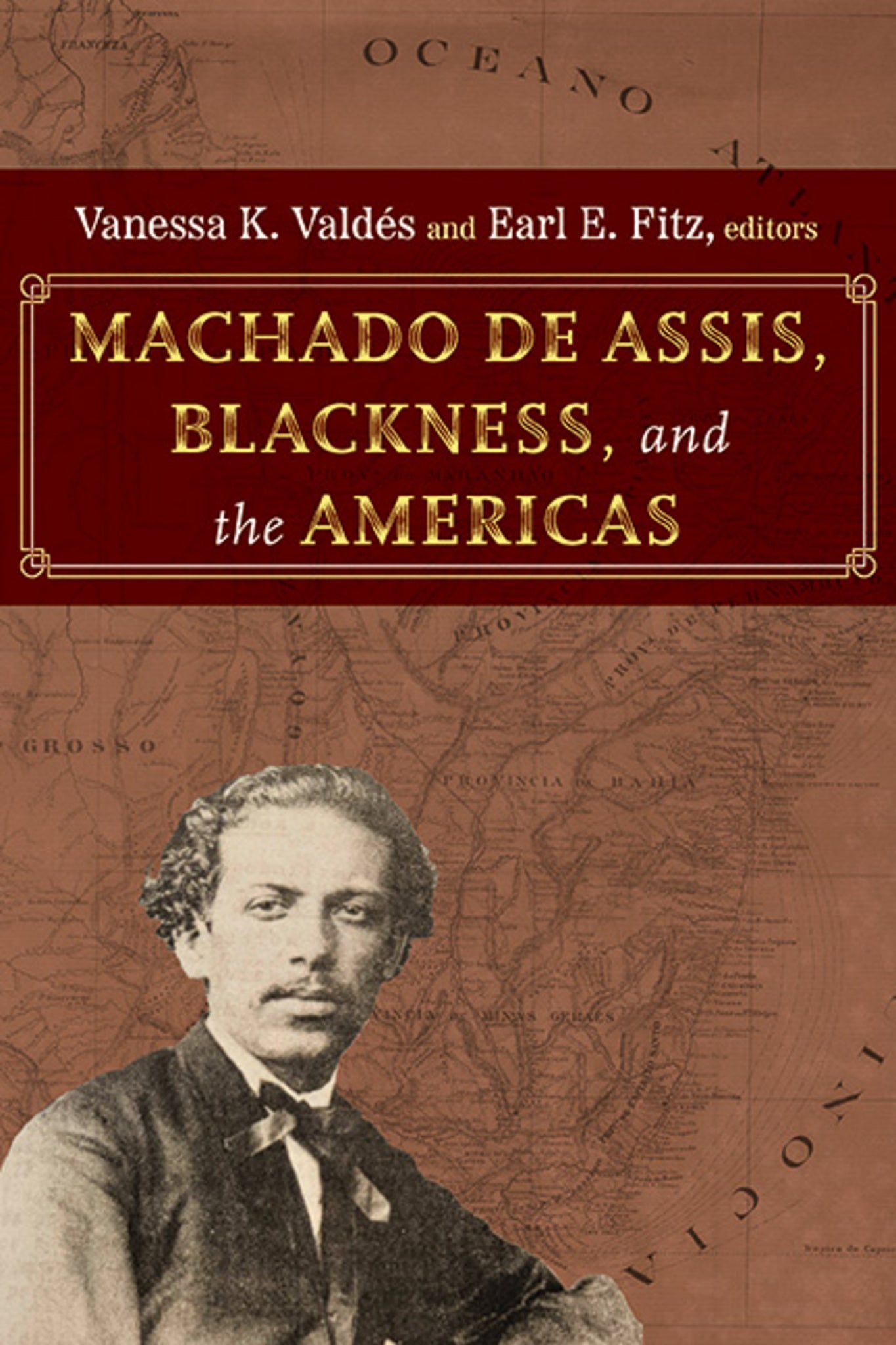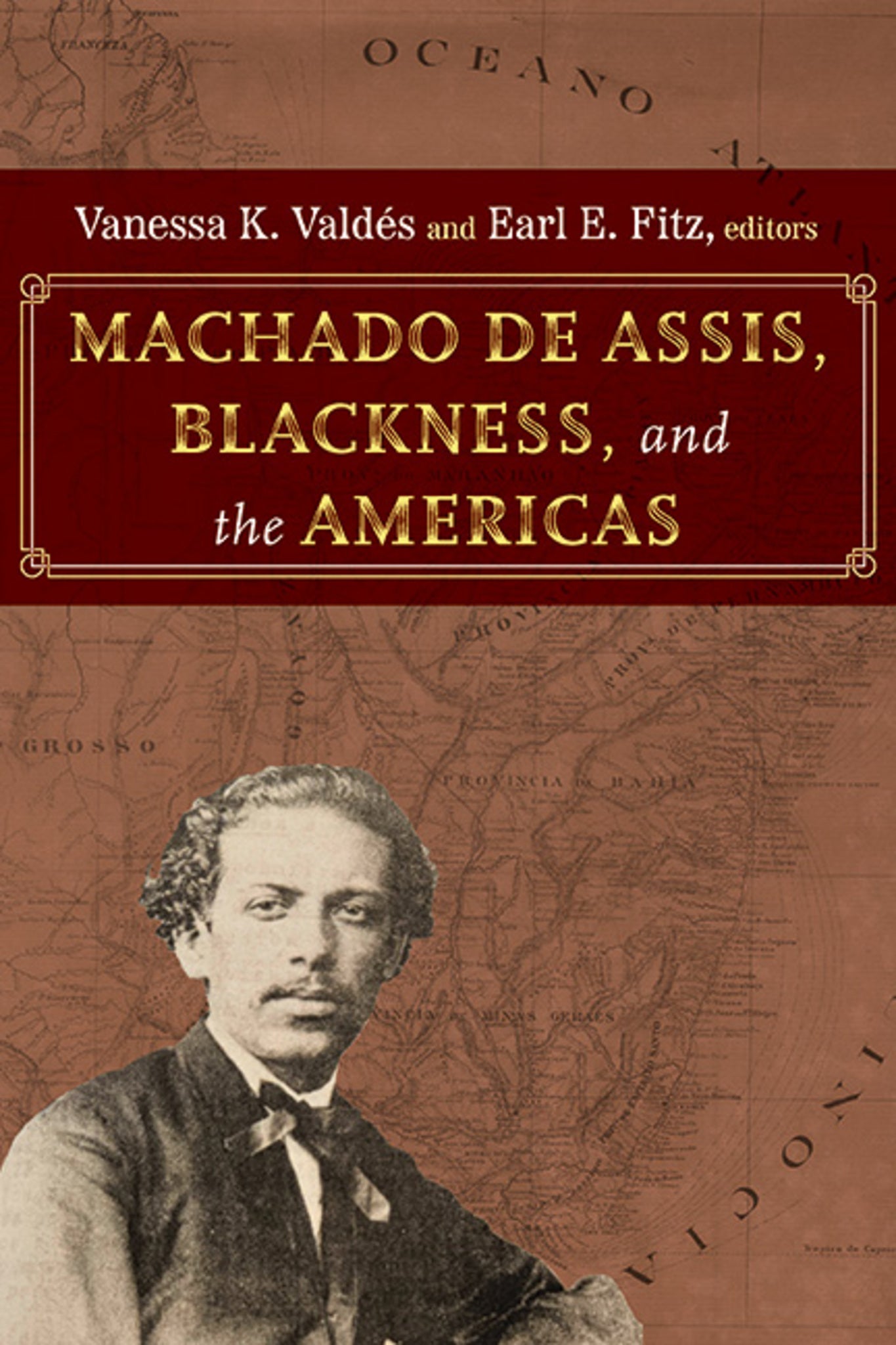We're sorry. An error has occurred
Please cancel or retry.
Machado de Assis, Blackness, and the Americas

Some error occured while loading the Quick View. Please close the Quick View and try reloading the page.
Couldn't load pickup availability
- Format:
-
01 August 2024

Examines the reception of Brazil's most-canonized writer in the United States to shed light on questions of Blackness and hemispheric American experience.
Considered a genius in his own lifetime, Joaquim Maria Machado de Assis (1839–1908) is Brazil's most canonized writer. Yet, he remains a contested and even enigmatic figure to readers in Brazil and abroad, his relative silence on slavery leaving him vulnerable to charges of aspirations to whiteness. Machado de Assis, Blackness, and the Americas reconsiders this issue by exploring how his prose fiction has been received in the United States. In seven original essays, contributors re-examine his novels and short stories, as well as photographs of the writer, in order to better understand the strategies he employed to navigate Brazil's literary scene as a man of African descent. Framed by a contextualizing introduction and an afterword in the form of a conversation between the editors, the volume speaks to and with our own historical moment and the realities of Black lives in the Americas over the course of the last two centuries.


"This volume is a deserved homage to Fitz's scholarship and his quest to widen the reception of Machado and bring his writings to the forefront of the comparative and inter-American canon." — H-Net Reviews (H-LatAm)
"…Vanessa K. Valdés and Earl E. Fitz make a robust case for exploring a vastly understudied facet of Machado de Assis's narrative—its involvement with matters of color, heritage, and social status in nineteenth-century Brazil … Readers and students of Machado's works should embrace the repetitious nature of this collection, for it seeks to remediate a critical perspective as narrow and restrictive as the social structures that created it. These essays contribute enormously toward that end." — Hispania
"This book asks not what Machadian Blackness is, but, more importantly, what does it do? How does the author's racial identity open the text and his biography to new debates and discoveries? What are critics to do when an author does not perform his identity in the way he is expected to? Comparisons to Harriet Beecher Stowe, Toni Morrison, Milton Hatoum, and Jeferson Tenório show how an inter-American approach to Machado—one that focuses on how his marginalization influenced his aesthetics, point of view, and characterization—has relevance far beyond understanding this single author." — John T. Maddox IV, author of Fractal Families in New Millennium Narrative by Afro-Puerto Rican Women
Acknowledgments
Introduction: The Complexities of Disguise: Machado de Assis and His Contemporary Moment
Vanessa K. Valdés and Earl E. Fitz
1. Machado de Assis in Brazil, the United States, and Greater America: A Writer, a Black Writer, Or... A Genius, Our Literary Pelé?
Earl E. Fitz
2. Black, Then White, Then Black Again: Brazil's Racial Politics and the Changing Face of Machado de Assis
Regina Castro McGowan
3. "Father against Mother": Race and/in the Reception of the Works of Machado de Assis
Paulo Dutra
4. Raimundo the Obscure: Enslavement, Abolition, and the Problematics of "Uncle Tom" Agency in Machado's Iaiá Garcia
Niyi Afolabi
5. Machado de Assis and the Color of Brazilian Literature in the United States
Benjamin Legg
6. Black Writer, White Letters? Machado's Racialized Reception of Identity and Aesthetics
Daniel F. Silva
7. Outsiders Within and Insiders Without: Narrating Race and Identity in Machado de Assis, Milton Hatoum, and Jeferson Tenório
David M. Mittelman
Afterword: A Conversation between Friends
Vanessa K. Valdés and Earl E. Fitz
Contributors
Index



